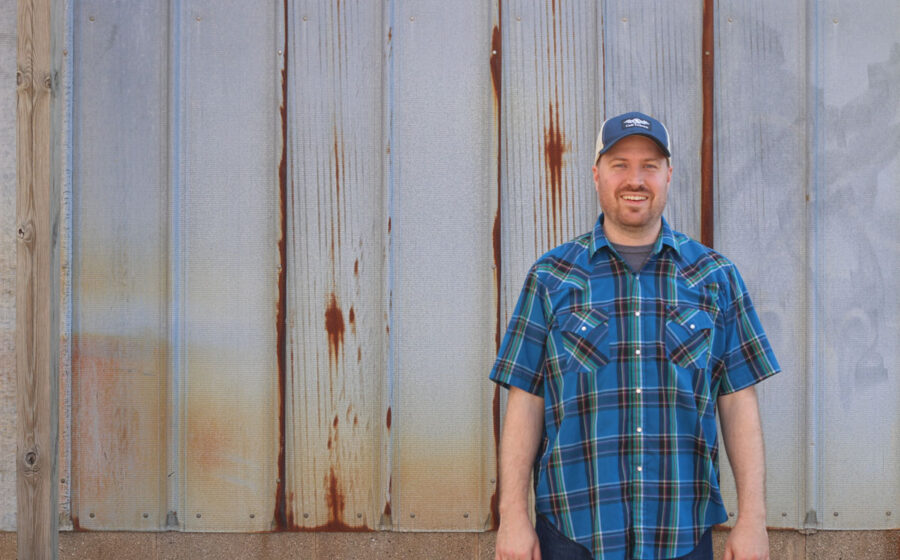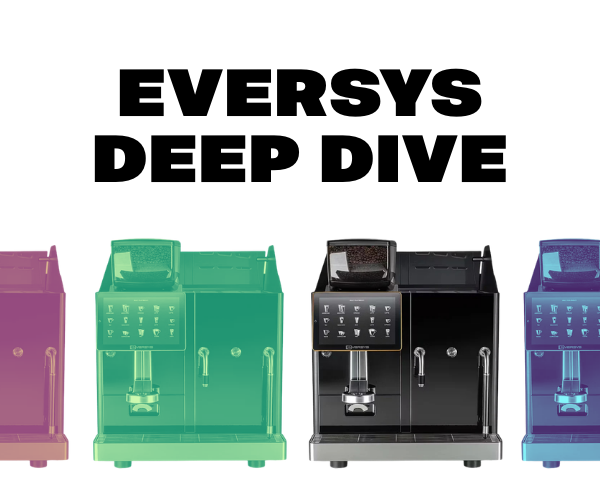[A] quick search of #BaristaLife on Twitter or Instagram will reveal a barrage of glamorous images—birds of silken milk taking flight; micro-shots of espresso in viscous beauty; life stories scrolling, Americana-style, down arms that end in tattooed fists. We baristas have a split identity—one foot behind us in the European culture that gave us birth, where (we hear) baristas can have retirement accounts, and one foot too far in American food service, where (we know) we’re lucky if we can afford a mortgage—and there is an undeniable undercurrent of panic beneath the bow ties and selfies. The question keeps nagging: Is it possible for me to make coffee a career?
I’m reminded of a private Twitter exchange I had recently with a barista friend back home in Kansas City. In middle age, with a strong culinary background, this barista said, “June will make 11 yrs. And I’m still stuck… LOVE making drinks, but can’t do that 4ever. Hands R getting tired quicker.” What, he concluded, could he do? He’s not the next best thing. He’s a badass coffee pro who’s been making outstanding drinks since many modern baristas were in high school. And unless something changes for him, five years from now he’ll be in the same place. Stuck.
This stagnancy, this lack of upward mobility, is a constant in the barista trade, as are empty tip jars, repetitive stress syndrome, boredom, and just plain exhaustion. Coffee, that magical bean-turned-beverage that seduced us years ago, has led many of us nowhere. What’s next? A tech job?
Then again, we fell in love, didn’t we? And that passion, once birthed, keeps offering us hope—the hope of somehow, anyhow, turning this daily, hourly job into something like a profession. A way to pay the bills and sock a little away that actually fills our hearts and gives us room to explore who we are personally and professionally. The good news is that as the coffee industry grows, there are more and more opportunities for baristas in the United States to build meaningful careers that help, not hamper, the construction of meaningful lives.
[M]elody Harwell has the kind of face you can grow old with, fine lines full of stories radiating from deep-set brown eyes over a wide mouth. She’s traveled the world by herself, started two successful coffee businesses, and other than a brief, miserable stint in office work has never worked outside coffee.
When she was sixteen, Melody lied about her age to get a job as a barista in Washington state—a step up, she thought, from being a waitress—and stumbled into her profession of choice, building her skills as a barista in cafés across the country. In her mid thirties now, Melody has watched the second wave rise and fall, seen the third wave crest, and says the essence is still the same: People want a quality product, made with care. “I was in Asia looking at noodle stands. And this one noodle stand always had a big line, even though this lady wasn’t selling a different product and there was no branding. Everyone knew her shit’s the better shit and the lines were always busy at her place.” With the entrepreneurial bug already nibbling Melody hard, this scene inspired the long-time barista to move to Hawaii (where she’d flown on a one-way ticket a few years before) and start her first shop in 2004—on a budget of only eight grand. With a huge amount of hard work, it succeeded, and Melody sold the business two years later to fund her next Asian trip, this one a yearlong wander.
“The pressure is huge … but all people really want is a great product, made with care.” —Melody Harwell
Melody’s not a contentious person, but she doesn’t hesitate to give industry expectations a star-tattooed middle finger. “The pressure is huge—it makes you want to collapse and fall over. It’s like a fashion show out there—gear, bling, money—but all people really want is a great product, made with care.” She started her second coffee business, Coffee Slingers, in Oklahoma City, where she came for a month visit en route from Asia to Hawaii and eventually stayed. Opening in that city, where there was almost no specialty coffee culture, was a gamble based on several years working there as a barista, observing its culture, and building faith in her adopted city. While it was tough going, the company just celebrated its sixth anniversary with a strong—and growing—following. The rise of several other quality-centric cafés and roasters is proof of the power of her vision.
Where once she would work as a barista to save for her long trans-continental rambles, now Melody travels to origin on behalf of Coffee Slingers, building relationships with coffee producers and involving her customers through social media and straight-up storytelling. She sees her role as shifting into mentorship of her staff, leaving the day-to-day café operations to others, and stewarding her coffee passion and knowledge to pass along to everyone in her sphere of influence.
[B]y now, Joe Marroco’s russet mustache and gentle, confident demeanor have made him an industry icon as he travels the country and the world as sale associate and director of education for Café Imports. But he didn’t always feel so confident about life. “I was working in churches, very much theologically minded, but eventually I got really jaded in the US church establishments,” he says. “I went back to school to study philosophy to gain a different perspective on life. Finally, I decided I needed to get serious about my life—and whatever I did, it had to make money.” Joe had been working part-time in a café in Cape Girardeau, Missouri, and when the owners of Kaldi’s Coffee Saint Louis’, who knew about his constant study of coffee excellence, offered him a job as a roaster, he took it.
The team at Kaldi’s excels in equipping employees with skills, knowledge, and opportunities to pursue their coffee passions, which made Joe’s hungry mind a good fit for the growing company. Hired as a roaster and initially struggling with the clash between the romantic image of “artisan roaster” and the common reality of “replicator-of-profiles,” Joe came to find fulfillment in the position. He also explored barista work and competitions, becoming South Central Barista Champion in 2011. “The devotion to doing things extremely well was already built into me,” he says, “and it was a natural progression that I moved into education—wholesale customer training, leading our barista training, and reaching out to customers.” His abilities in these wide-ranging coffee fields caught the eye of the Café Imports team, leading him to his next career step.
“It was a dream of mine to one day get to Café Imports, but I never really considered what a roadmap to that place would look like. I thought you had to be in the industry on the green side to join a company with that kind of prestige.” —Joe Marocco
What does it take to get a job at Café Imports, the Minneapolis-based coffee importing company known for industry involvement, relational coffee sourcing, and powerful storytelling? Joe wondered along with the rest of us. “It was a dream of mine to one day get to Café Imports, but I never really considered what a roadmap to that place would look like. I thought you had to be in the industry on the green side to join a company with that kind of prestige.” He didn’t count on finding another company that hired based on who he was, not on his resume. “I’d never sold green coffee before. They took a big risk with me, just like Kaldi’s, and it was hard to leave Saint Louis, hoping I had given back all they had invested in me there.” He adds, “It’s really the humble, hard-working people in the industry who are getting opportunities based on who they are, not those who are striving to be superstars.”
Joe Marroco carries himself with a unique blend of confidence and humility. Here, you instinctively feel, is someone who knows how to be. A devoted husband and father with a job he loves, working for a company he’s proud of: From the outside it looks like the magic combination. “Whether you’re standing at a roaster day in and day out replicating someone else’s roasts or you’re checking cherries at a mill, whoever you are, you have to find joy in connection with people and in what you do,” he says. “In the end, coffee is a means to those connections.”
[T]he 2005 US Barista Champion is a small, confident woman with sparkling brown eyes and sleek black hair that curls a bit at the ends. Phuong Tran was born in Vietnam and escaped in a boat in 1979 with her seven siblings and widowed mother, landing eventually in Oregon. A barely-there accent lingers in her vowels and reminds you of the long and winding road she took to coffee.
Bored with her career in the IT industry, Phuong bought Lava Java, a coffee and gift shop in an undeveloped mall in Ridgefield, Washington, in 2002. With absolutely no coffee experience, she built it into one of the renowned specialty coffee establishments in the Pacific Northwest. “There were no resources then—no consulting, nothing online,” says Phuong, “but one of my baristas and I both fell in love with coffee and had this passion to dig into it as much as possible.” The other barista’s name? Billy Wilson, who became a three-time Northwest Barista Champion and owner of Barista, a micro-chain of outstanding multi-roaster shops in Portland. Together they tasted, experimented, and shared coffee knowledge, supporting each other at barista competitions and remaining friends through the years.
Phuong is an outstanding example of the many roles available in career coffee: owner, barista, competitor, trainer, and educator. Her twelve-years-and-counting story demonstrates the growing opportunities in the coffee industry; she’s built a meaningful life that she happily admits to still be evaluating as she moves into her forties.
While Phuong’s list of credentials span the full range (licensed Q Grader, SCAA lead instructor for skill-building workshops and BGA Certification Courses, USBG head judge, and member of the executive council of the BGA), she has a simple take on achieving success in the coffee industry: “It’s tough sometimes, but I think if you focus on what you really want, you can find a way to make it happen for you. There are so many opportunities in the industry.” The predominant expression on her face is hope, and it’s contagious. Take baby steps in a new direction, she advises, and definitely go to all those free cuppings.
[L]et’s return to my friend in Kansas City. “Others have asked why don’t I do consulting? Because I have nothing sparkly associated with my name,” he says. The truth is it can be a hard industry for introverts, for eccentrics, for mystics, for misfits. (Which, let’s be honest, we all are in one way or another.) Taking chances, failing and recovering, embracing change? It doesn’t come easy. Crawling out of our shells and engaging with other coffee professionals who might think we’re idiots? Breathtakingly difficult for many. Learning new skills, trying new things? Essential.
“You have to decide what you really love, and figure out how to make that work, one step at a time. Everyone has ups or downs, personal or business, but things can turn around—they certainly have for me.” —Phuong Tran
With the spread of specialty coffee and the proliferation of online social networks, with increased ease of travel and non-stop consumer demand, the coffee industry is morphing at warp speed. There is always another step to take, another skill to learn. From the green side there’s importing, grading, quality control, sample roasting and cupping, or going even farther down the chain, working at farms, mills, co-ops, and in logistics. The brown side includes roasting, barista work, competitions, training, consumer education in a wide range of businesses, and even (as for this barista-turned-wordsmith) writing, marketing, and coffee event planning. Few of us can pretend to actually stay current with it all; few of us can keep our heads above the waves. Accepting that, few of us can afford to rest on our laurels and remain stagnant while the industry passes us by.
The good news is that there really is more and more room in our trade for well-intentioned and passionate baristas to build a coffee career. Phuong says, “You have to decide what you really love, and figure out how to make that work, one step at a time. Everyone has ups or downs, personal or business, but things can turn around—they certainly have for me.”
Coffee. The connections we make through it. Work that brings satisfaction, curiosity, and fulfillment. These are our common goals. There’s no Royal Road, which is good news. We’re in this together, a spider web of widely disparate individuals bound together by a single passion.
Barista? Yes, but not only: coffee professional.
—Emily McIntyre is a barista and writer based in Portland.
—Photo of Joe Marroco by Andy Reiland.












